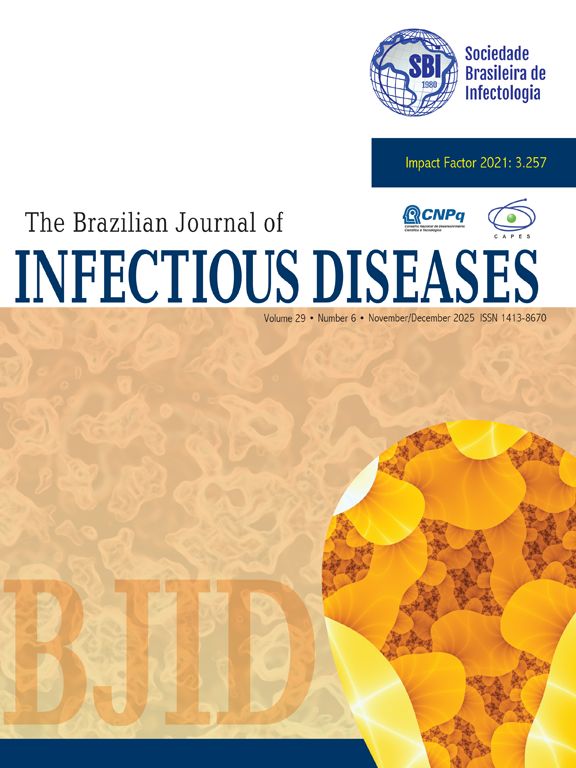Nocardia is a rare opportunistic agent, which may affect immunocompromised individuals causing lung infections and exceptionally infective endocarditis (IE). There are few reports of IE caused by Nocardia sp., usually involving biological prostheses but rarely in natural valves. Its accurate microbiological identification may be hampered by the similarity with Rhodococcus equi and Corynebacterium spp. Here we report a case of native mitral valve IE caused by this agent in which the clinical absence of response to vancomycin and the suggestion of Nocardia sp. by histology pointed to the misdiagnosis of Corynebacterium spp. in blood cultures. The histological morphology can advise on the need for expansion of cultivation time and use of extra microbiological procedures that lead to the differential diagnosis with Corynebacterium spp. and other agents, which is essential to establish timely specific treatment, especially in immunocompromised patients.
The Impact Factor measures the average number of citations received in a particular year by papers published in the journal during the two preceding years.
© Clarivate Analytics, Journal Citation Reports 2025
SRJ is a prestige metric based on the idea that not all citations are the same. SJR uses a similar algorithm as the Google page rank; it provides a quantitative and qualitative measure of the journal's impact.
See moreSNIP measures contextual citation impact by wighting citations based on the total number of citations in a subject field.
See more



